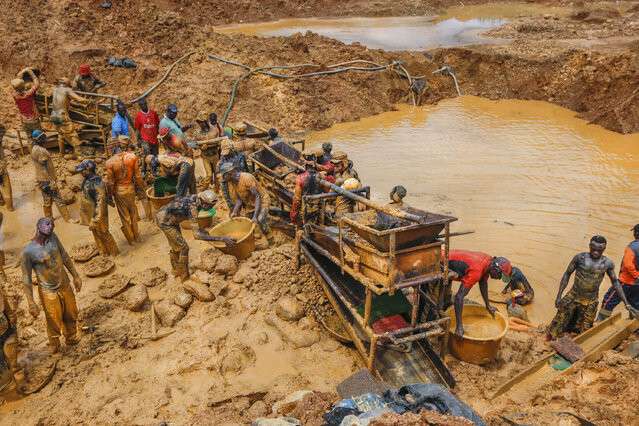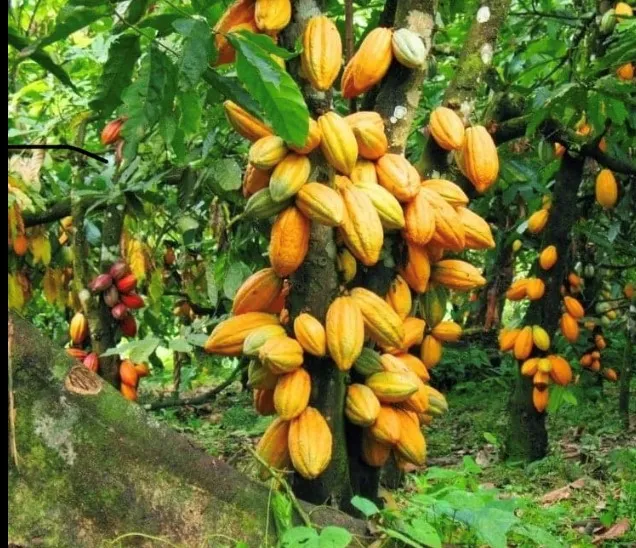Ghana, a nation rich in both mineral resources and agricultural potential, finds itself at a crossroads.
On one side is its proud history as one of the world’s leading cocoa producers, while on the other is the allure of gold mining, specifically illegal small-scale mining known as galamsey.
The illegal mining activities have led to significant environmental, social, and economic challenges, posing a threat to the country’s cocoa industry.
As the nation grapples with these competing interests, there is an urgent need to prioritize sustainable cocoa farming to protect livelihoods, preserve the environment, and ensure the long-term prosperity of Ghana’s agricultural sector.
Accordingly, Farmline Group, an agriculture development-based institution, has highlighted that illegal mining and unsustainable practices pose significant threats not only to the environment but also to the livelihoods of communities that depend on agriculture for their survival.
Farmline indicated that these activities lead to soil degradation, deforestation, and water pollution, which reduce agricultural productivity, threaten food security, and force farmers to abandon their lands.
The group stressed that without urgent intervention, the economic and social stability of these communities will be at serious risk, as agricultural decline impacts local economies and worsens poverty levels.
“Farmers shouldn’t have to choose between their land and their survival… Clearing cocoa farms in search of gold. This reveals a deeper issue: while cocoa has a reliable market, the income it provides farmers often falls short of covering rising costs and supporting their communities”.
Farmline Group

Farmline further noted that the global chocolate industry, valued at over $130 billion, is enjoyed by millions of consumers worldwide and supports millions of jobs across the entire supply chain, from cocoa farmers and processors to manufacturers, distributors, marketers, and retailers.
Farmline maintained that this vast network plays a crucial role in sustaining economies and communities around the world. “Yet, many of the farmers behind this industry face difficult choices as they balance farming with their livelihood needs”.
Galamsy’s Impact: Local Issues with Global Repercussions
Furthermore, Farmline Group emphasized that the loss of cocoa farming lands to galamsey is more than just a local issue; it is a critical global concern.
This challenge affects not only Ghana’s agricultural sector but also the international chocolate industry, which relies heavily on a stable and sustainable cocoa supply to meet global demand and sustain economies worldwide.

“Sustainable cocoa farming is essential to ensure the future of the chocolate we love, while also safeguarding livelihoods and protecting the environment. How can you be a part of the solution? Offer reminders and training in regenerative farming practices. Provide affordable, sustainable financing. Most farmers already want to protect the environment. They just need to be able to afford it”.
Farmline Group
The group further suggested the creation of reliable and fair income opportunities for farmers to ensure economic stability and discourage them from turning to illegal mining activities.
This involves ensuring farmers have access to premium markets, delivering training programs focused on sustainable farming methods, and establishing fair pricing policies that accurately represent the value of their labor and produce.
According to Farmline, supporting farmers is essential to sustaining the entire cocoa industry.
The group stressed that when cocoa farmers thrive, it not only secures the future of chocolate production but also promotes economic stability and growth within farming communities.
Farline indicated that by advocating for sustainable practices and fair compensation, we can ensure that the benefits of this cherished product are shared equitably across the entire value chain, from the farmers cultivating cocoa beans to the consumers enjoying chocolate worldwide.
Thus, it is crucial to stand with those calling for meaningful change and to build a system that supports all stakeholders, from farm to table.
READ ALSO: Jill Biden To Launch 5-Day Campaign Tour For Harris Campaign



















